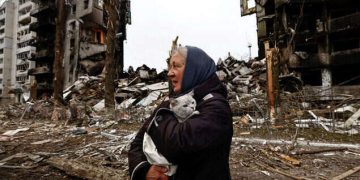FREEDOM of speech is under threat from radical Muslims trying to impose blasphemy laws in all-but name, a chilling report warns.
The Commission for Countering Extremism has laid bare the intimidation faced by those perceived to have disrespected Islam.

It found that anti-blasphemy activism in Britain is “gaining momentum and becoming increasingly radicalised”.
A “new generation” of extremists is said to be aided by the Pakistani political party Tehreek-e-Labbaik, which is developing a growing foothold in the UK.
The report notes that its late founder Khadim Rizvi had a long record of calling for and supporting violence and even murder against accused blasphemers.
It highlights three “blasphemy flashpoints” in recent years, including protests outside a Batley school in 2021 after pupils were allegedly shown a picture of the prophet Mohammed.
The accused teacher received death threats and was forced into hiding.
Counter-extremism tsar Robin Simcox said: “This report addresses an increasingly key issue facing our country.
“Clearly there can be no blasphemy law in the UK and those wishing to impose such a thing must fail.
“We must defend freedom of speech from those who want to place limitations on certain topics, even if those conversations then end up being controversial or uncomfortable.
“Confronting these topics head on is the only way we will make progress.”
A government spokesperson said: “We take all incidents of anti-blasphemy extremism very seriously. We have seen the report and will be considering its recommendations.
“We are taking action to ensure that no extremist organisations or individuals are being given a platform by their actions and interactions with government. We will set out further details shortly.”
Ministers will this week create a new definition of extremism to clamp down on individuals undermining British values.
Security Minister Tom Tugendhat yesterday dismissed claims Rishi Sunak was “politicising” the issue.
He said: “We’re making sure that extremism doesn’t spread hatred in our community.
“Now, of course we need ideas, of course we need a challenge of thought, but what we also need to do is make sure that people are safe in our country, and that they’re not led down the path of radicalisation.”





























